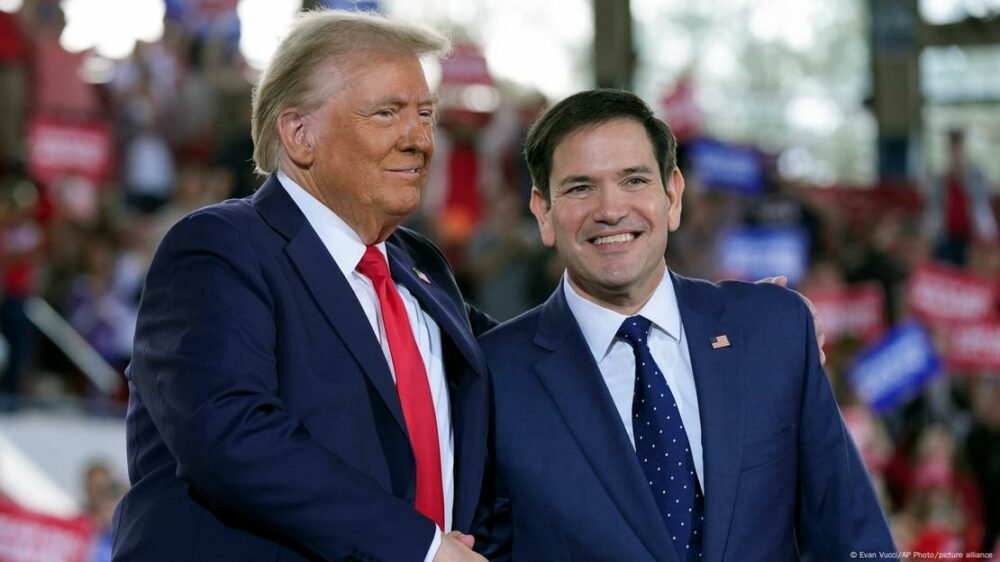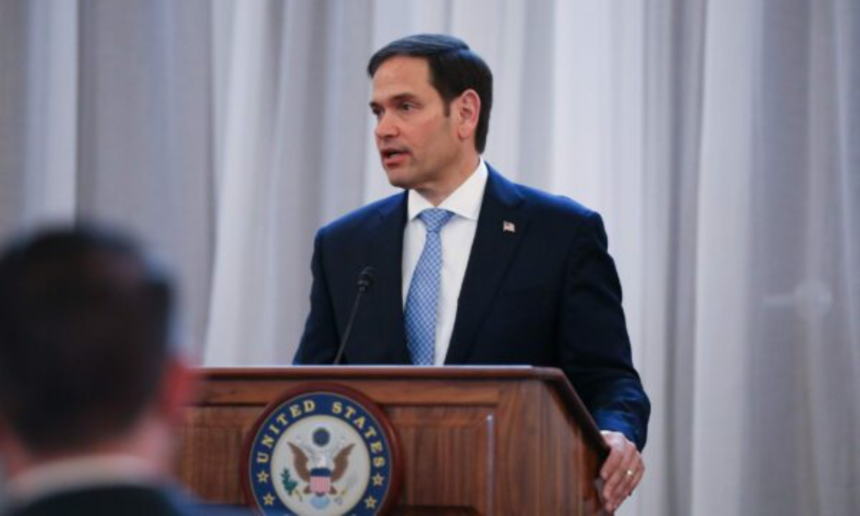Once considered a moderate alternative to Trump, Marco Rubio is now expected to become the new U.S. Secretary of State. But what can Berlin and Brussels expect under Rubio’s leadership?
The question of power between U.S. Secretary of State Marco Rubio and Donald Trump was settled as early as the 2016 Republican primaries. The then 44-year-old Republican senator from Florida entered his party’s presidential race as the hope of a “new generation.” Rubio had earned a reputation as a moderate counterpoint to the extreme positions of the eventual winner, Donald Trump, who entered the race from outside the establishment.
Born in Miami to Cuban immigrant parents—his father worked as a bartender, his mother as a housekeeper—Rubio wanted to embody the ideal of the “American Dream” through his political career. Although initial polls were promising, Senator Rubio was forced to drop out of the presidential race in March 2016 after a decisive loss in Florida to Donald Trump. During the campaign, he had described Trump as a “third-world dictator.” Despite his loss to Trump, whom he had called a “fraud who would never control the party,” Rubio’s campaign strengthened his national image and cemented his role as a powerful voice within the Republican Party.
Trump Calls Him “Little Marco”

Despite Trump mocking Marco Rubio as “Little Marco” during the primaries, the two politicians later found common ground on foreign policy during Trump’s first term. Rubio served on the Senate Foreign Relations Committee and the Intelligence Committee, and, like Trump, he supported a hardline stance against China and a confrontational approach to authoritarian regimes like Iran, Venezuela, and Cuba. His pro-Israel position and close relationship with Prime Minister Benjamin Netanyahu also created an ideological alignment with the new U.S. president.
On the other hand, Rubio has expressed criticism of NATO policies under Trump and the president’s past relations with Vladimir Putin. His foreign policy credo—a more interventionist approach—has been a long-standing preference.
Maintaining Distance
On the other hand, Rubio did not endorse Trump’s lies about the 2020 “stolen election” and condemned the January 6th Capitol insurrection. However, as far as foreign policy is concerned, Rubio adjusted his views this election year and moved closer to Trump’s isolationist stance. He voted against extending aid to Ukraine in the Senate and now predicts a swift end to the war: “I’m not on Russia’s side, but unfortunately the reality is that the war in Ukraine can only end through a negotiated settlement,” Rubio said in an interview with NBC.
Trump’s Praise for Rubio
President-elect Donald Trump now lavishes praise on his future Secretary of State: “He will be a strong advocate for our country, a true friend of our allies, and a fearless fighter who will never back down from our adversaries,” Trump said in a statement.
Criticism of Germany
Rubio is unlikely to be an easy partner for the German federal government. The American politician has repeatedly criticized German companies still investing in China. Like his future boss, Rubio insists that Europeans must significantly increase defense spending. His stance: NATO’s European members will have to increase their share of defense responsibilities; the U.S. cannot bear the entire cost of Europe’s defense.
Regarding the Ukraine conflict, the future U.S. Secretary of State would like to see Germany play a more active role. Rubio has criticized Berlin in the past for its initially hesitant support for Ukraine, but he has also underscored Germany’s importance for European security. Despite all the criticisms on individual issues, Rubio, with his extensive foreign policy experience, is likely to be very interested in working closely with Germany and other European partners.







